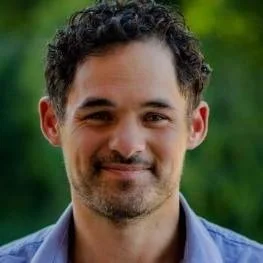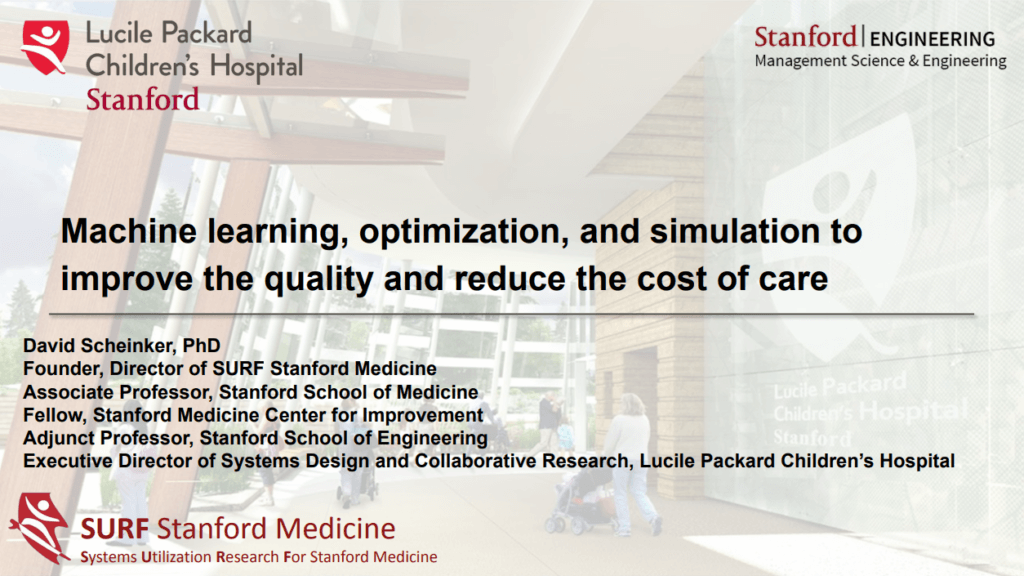Machine learning, optimization, and simulation to improve the quality and reduce the cost of care
August 3rd, 2021
Advanced analytics have improved quality, transparency, and efficiency in other industries. They have the potential to improve hospital operations. However, hospitals often lack the technical and cultural infrastructure to fully the gains seen from advanced analytics in other types of companies. In this talk, we will present a non-technical framework for enabling the success of analytics projects and illustrate its use, or lack thereof, with projects to improve surgical scheduling accuracy, CLABSI tracking, and type 1 diabetes care.
David Scheinker
David Scheinker, PhD is the Executive Director of Systems Design and Collaborative Research at the Stanford Lucile Packard Children’s Hospital. He is the Founder and Director of SURF Stanford Medicine, a group that brings together students and faculty from the university with physicians, nurses, and administrators from the hospitals. SURF has implemented and published dozens of projects demonstrating improvements to the quality and efficiency of care. His areas of focus include clinical care delivery, technical improvements to hospital operations, sensor-based and algorithm-enabled telemedicine, and the socioeconomic factors that shape healthcare cost and quality.


